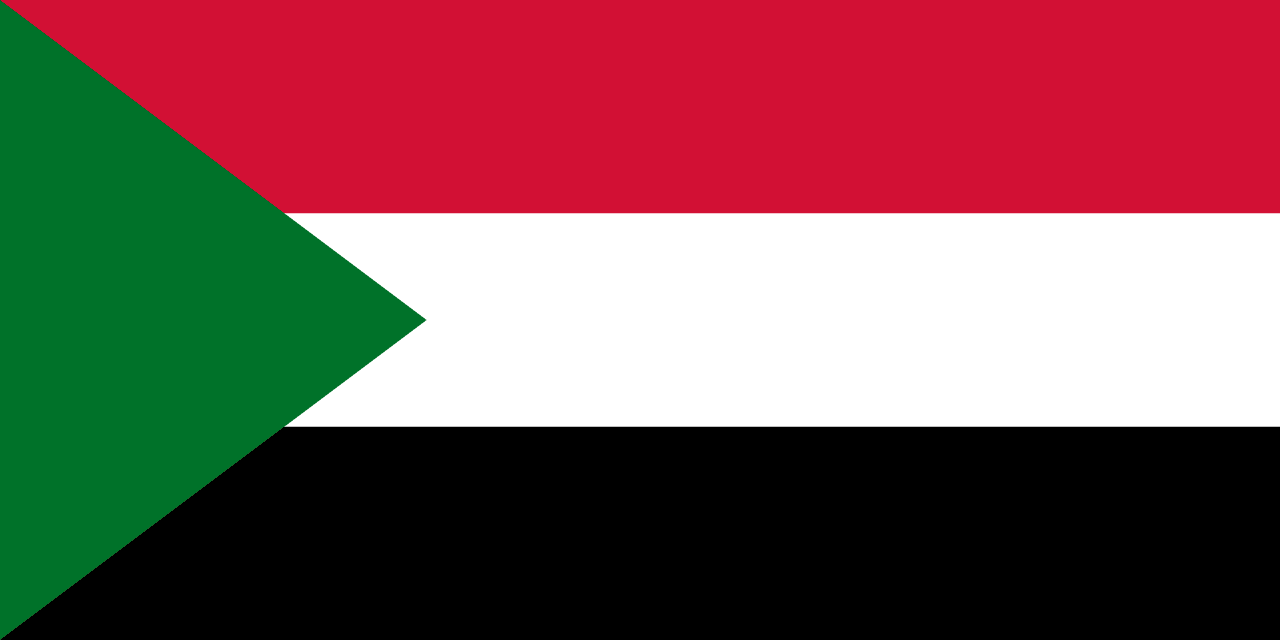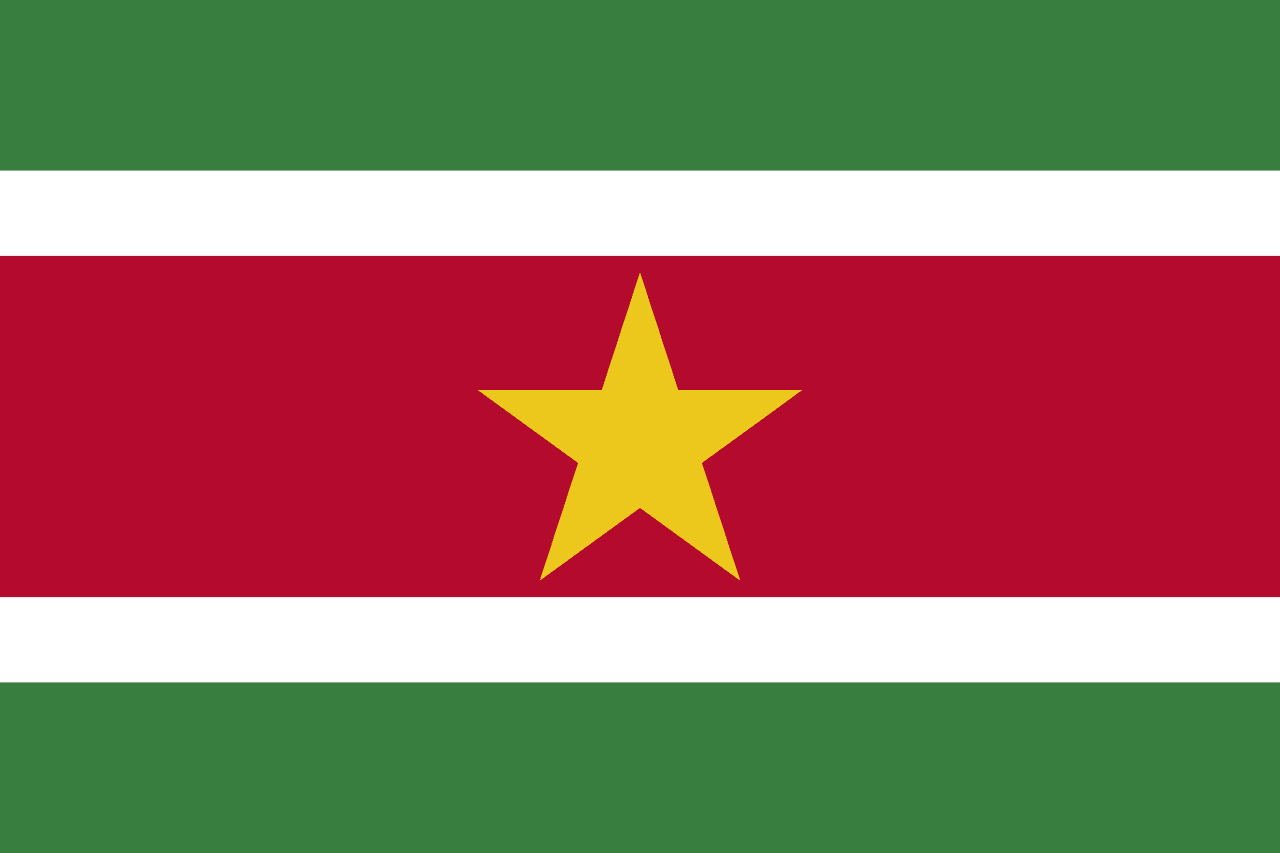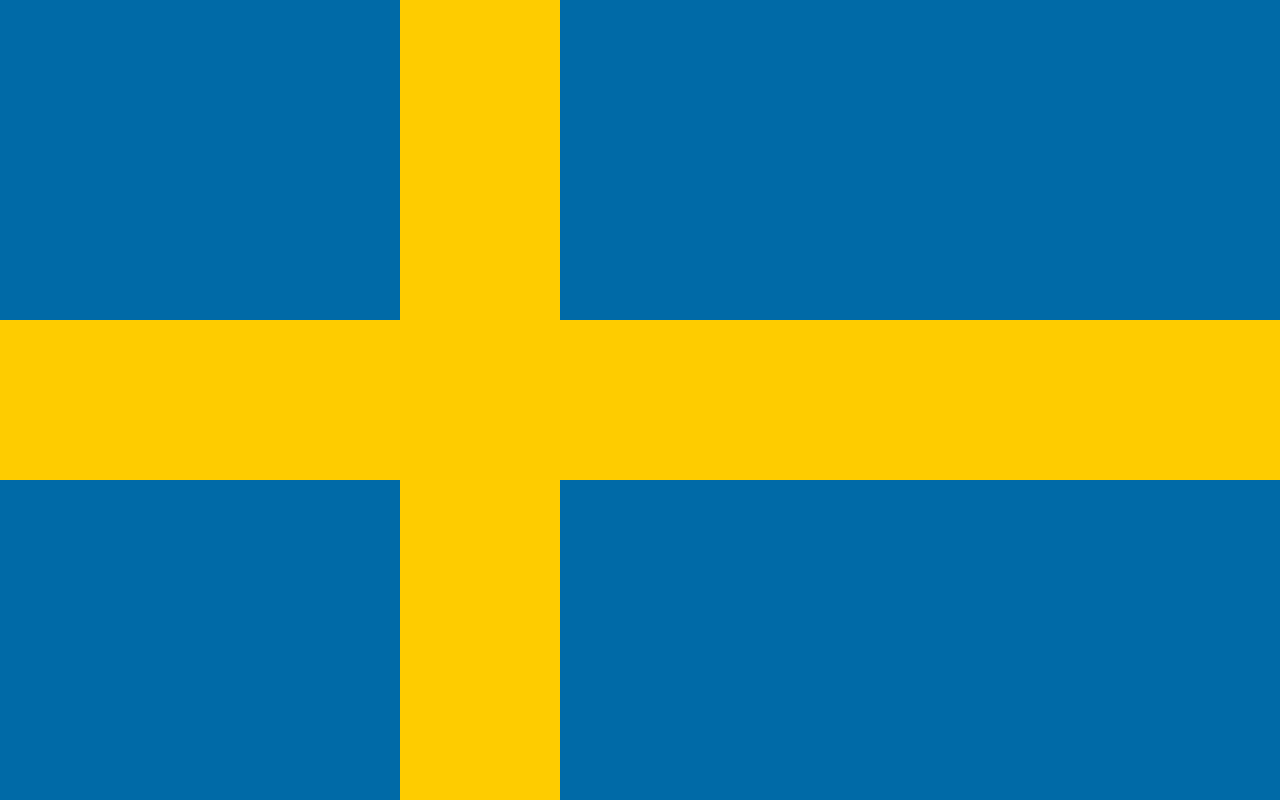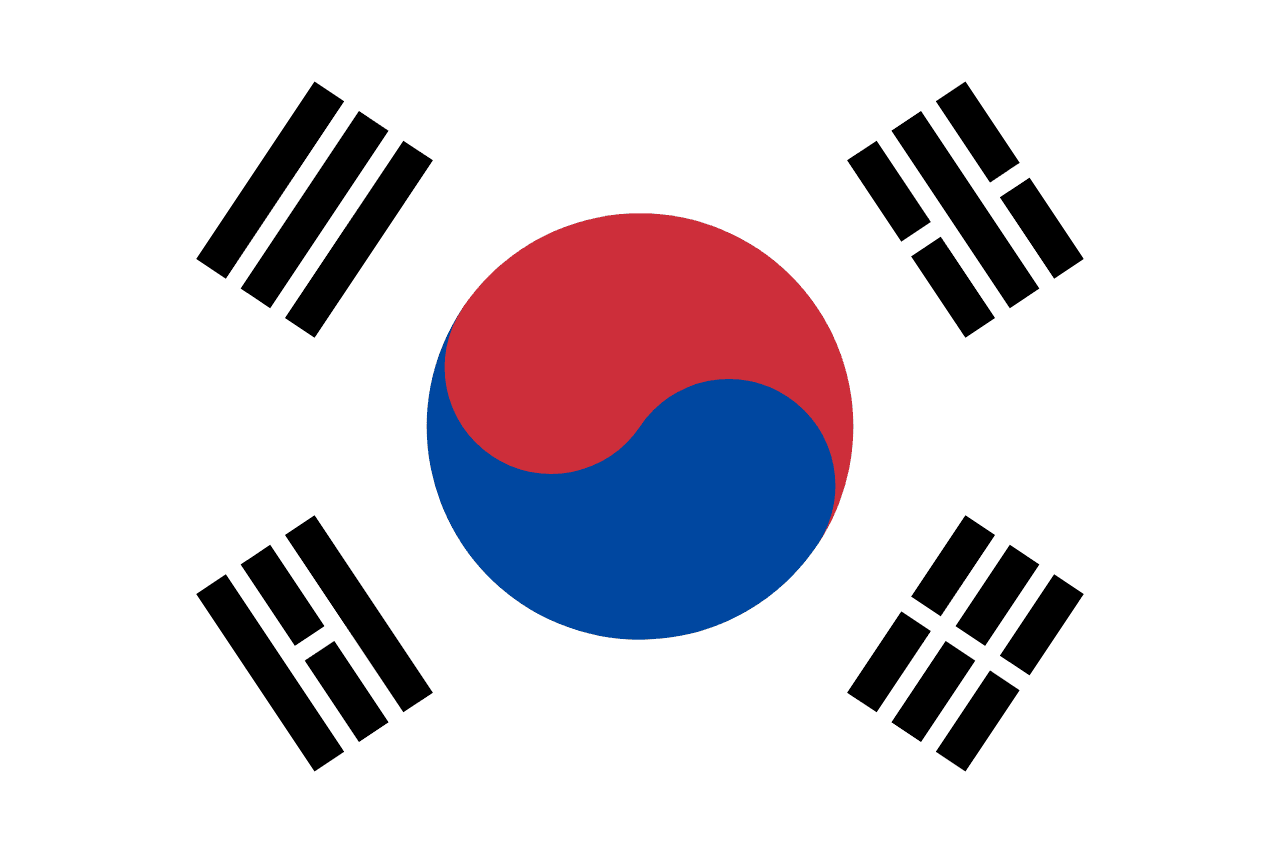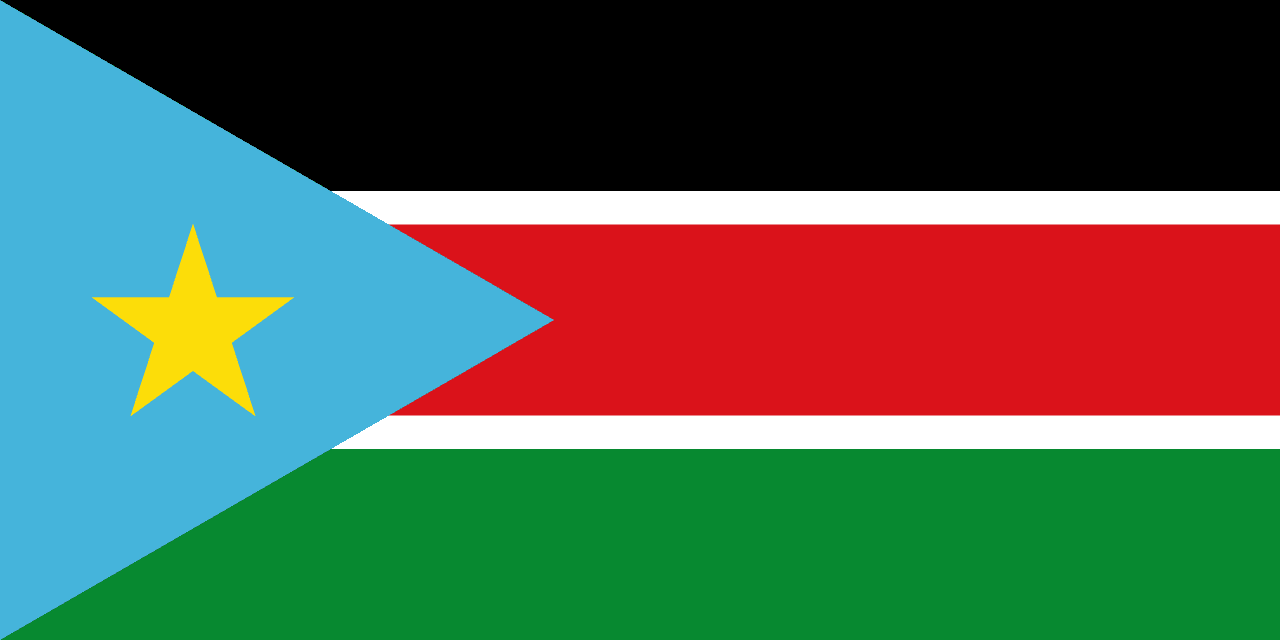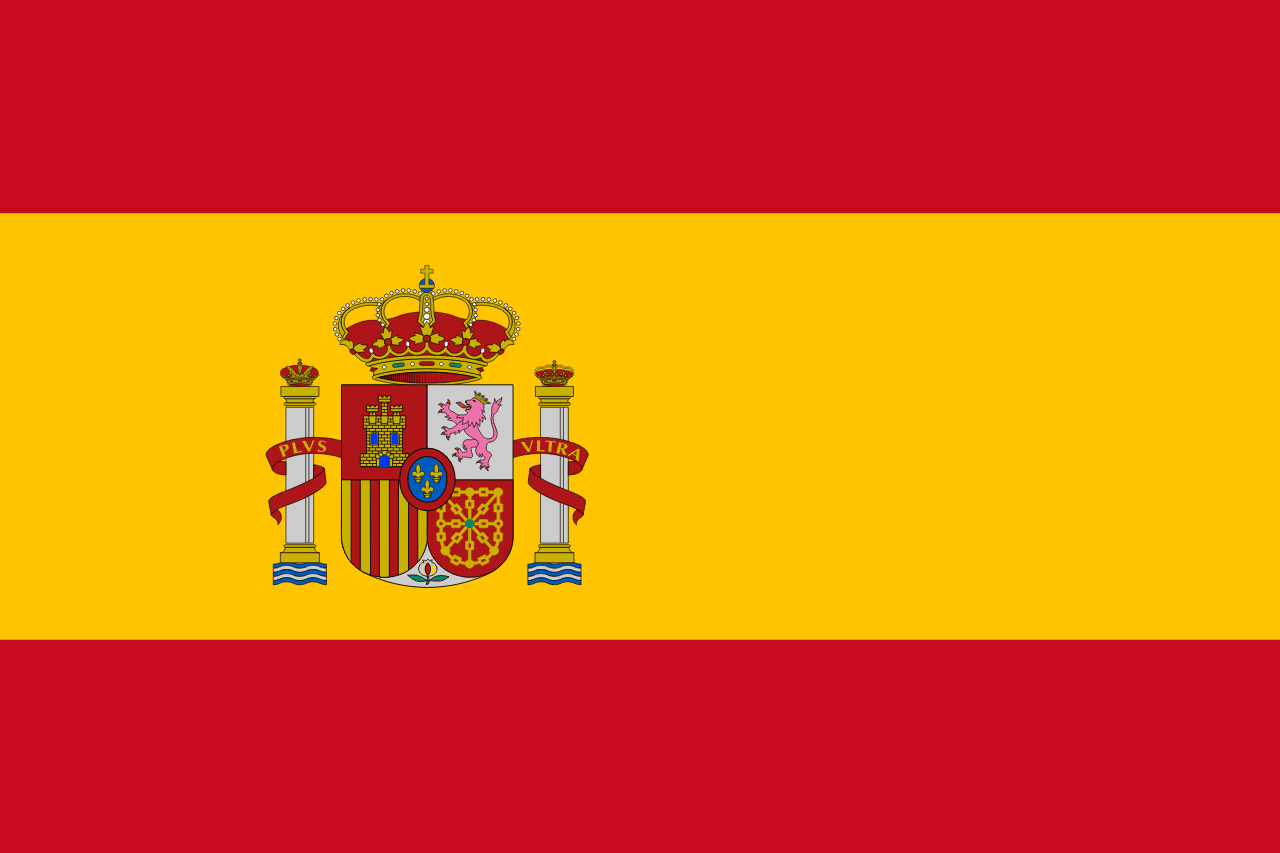The flag of Sri Lanka, known as the "Lion Flag," features a golden lion holding a sword on a maroon background, surrounded by golden bo leaves. The flag is bordered by yellow on three sides, with vertical stripes of green and orange on the hoist side. This intricate design reflects Sri Lanka's rich history and diverse cultural heritage.
Sri Lanka information
| National Flag Day | — |
| Sovereign state | Yes |
| Official name | Democratic Socialist Republic of Sri Lanka |
| Capital | Sri Jayawardenepura Kotte |
| Population | 22,156,000 |
| Area | 65,610 km² |
| Currency | Sri Lankan rupee (LKR) |
| Language | Sinhala, Tamil, English |
| Continent | Asia |
| Region | South Asia |
| Subregion | — |
| Borders | India |
| Timezone | Sri Lanka Time (SLST) UTC+5:30 |
| Calling code | +94 |
| Top-level domain | .lk |
History of the Sri Lankan flag
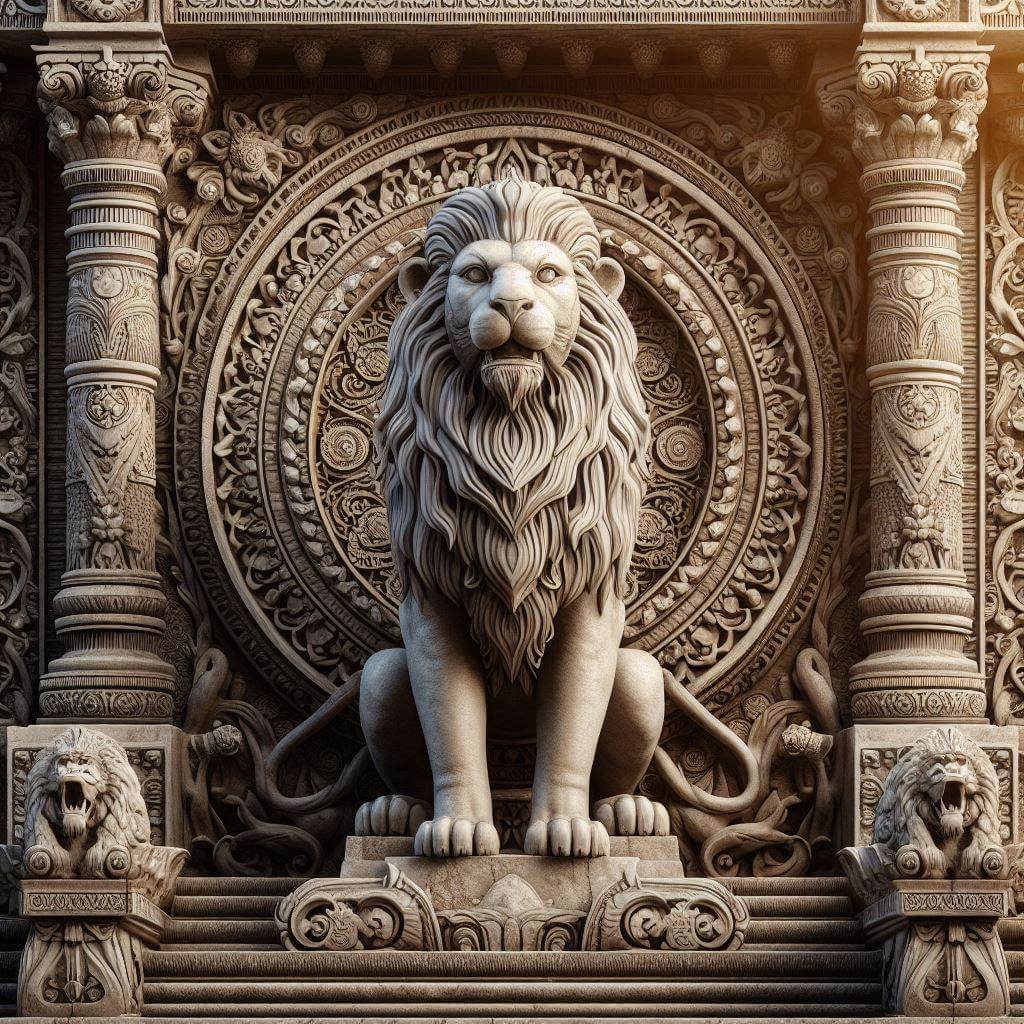 The current design of the Sri Lankan flag was adopted on May 22, 1972, when the country became a republic. However, its basic elements date back to 1948 when Sri Lanka (then Ceylon) gained independence from British rule. The design incorporates symbols from the ancient Sinhalese kingdom and elements representing the country's minority communities.
The current design of the Sri Lankan flag was adopted on May 22, 1972, when the country became a republic. However, its basic elements date back to 1948 when Sri Lanka (then Ceylon) gained independence from British rule. The design incorporates symbols from the ancient Sinhalese kingdom and elements representing the country's minority communities.
Symbolism and design of the Sri Lankan flag
Each element of the Sri Lankan flag carries deep symbolic meaning:
- The golden lion represents the Sinhalese ethnic majority and is a symbol of Sri Lanka's strength and bravery. It holds a sword, signifying the sovereignty of the nation.
- The maroon background of the lion represents the country's long history and traditions.
- The four golden bo leaves in the corners symbolize the four Buddhist virtues: Metta (loving-kindness), Karuna (compassion), Mudita (joy), and Upekkha (equanimity).
- The yellow border represents the unity of the nation.
- The green stripe represents the Muslim minority.
- The orange stripe represents the Hindu Tamil minority.
Usage and significance of the Sri Lankan flag
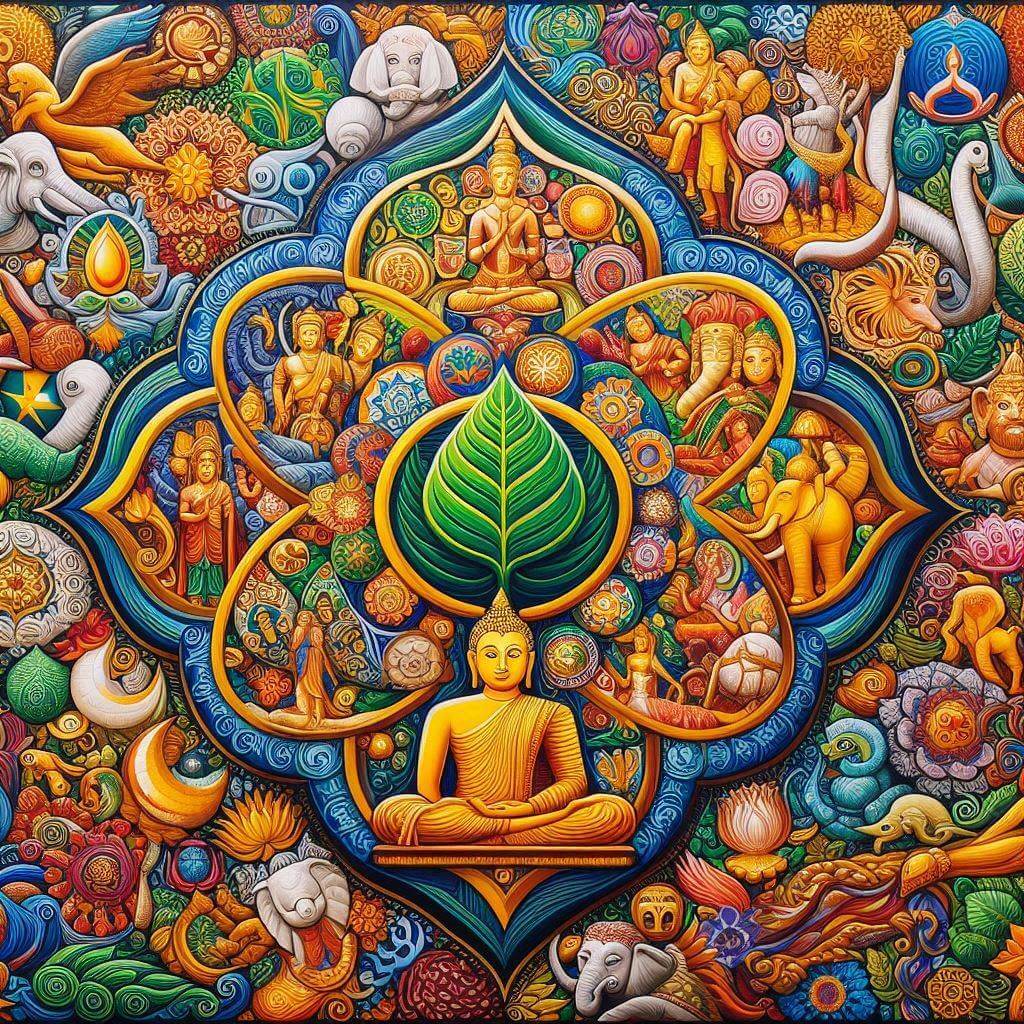 The Sri Lankan flag is a powerful symbol of national identity and unity. It is displayed on government buildings, during national celebrations such as Independence Day on February 4, and at international events. The flag represents Sri Lanka's rich cultural diversity, its Buddhist heritage, and its commitment to harmony among different ethnic and religious communities.
The Sri Lankan flag is a powerful symbol of national identity and unity. It is displayed on government buildings, during national celebrations such as Independence Day on February 4, and at international events. The flag represents Sri Lanka's rich cultural diversity, its Buddhist heritage, and its commitment to harmony among different ethnic and religious communities.
Interesting facts about the Sri Lankan flag
- The lion symbol in the flag is derived from the banner of the last king of Sri Lanka, making it one of the oldest national symbols in the world.
- The flag is one of the most complicated national flags, with five different colors and multiple symbolic elements.
- The bo leaves represent the Bo tree under which Buddha attained enlightenment, connecting the flag to Sri Lanka's Buddhist heritage.
- In 2015, Sri Lanka set a Guinness World Record for the largest human national flag, formed by 50,000 volunteers.
